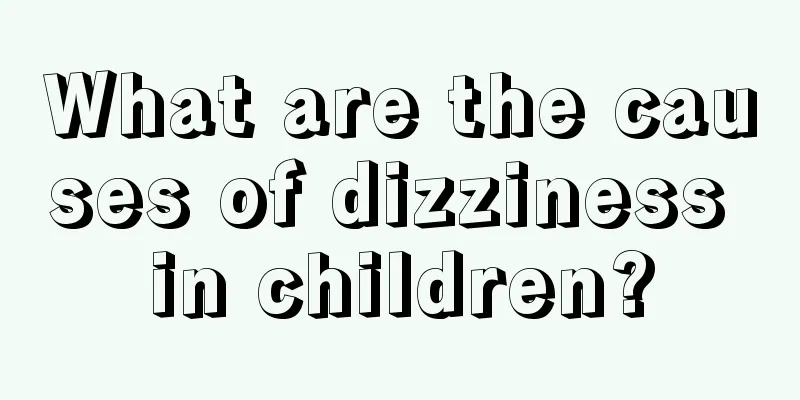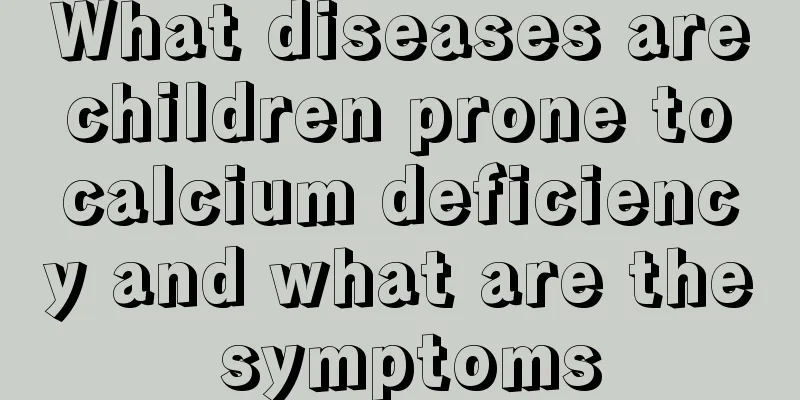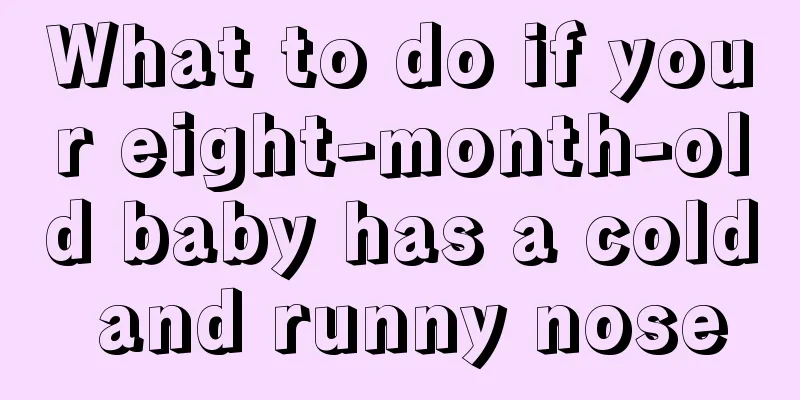What are the causes of dizziness in children?

|
If children show symptoms of dizziness, parents should pay attention. There are many reasons for dizziness, including bad living habits and diseases. For example, lack of sleep, seasickness and motion sickness can easily cause dizziness. In addition, increased intracranial pressure, Meniere's syndrome and some other diseases can also easily cause such situations. Parents should make a distinction. (1) Insufficient sleep. It is more common in school-age children, mostly caused by heavy study burden and going to bed late and getting up early. They often complain of dizziness, loss of appetite, and lack of energy shortly after getting up. They usually do not feel a sense of objects spinning around them, nor do they experience nausea or vomiting. If you increase your sleep time, dizziness will disappear naturally. 2) Hypoglycemia. Mainly caused by hunger. Inadequate breakfast intake is common in childhood. The amount of food intake is often affected by getting up in the morning and rushing to school or the breakfast food is not to one's taste. If accompanied by lack of sleep at night, dizziness is more likely to occur. In more severe cases of hypoglycemia, you may feel general fatigue, cold sweats, pale face, cold hands and feet, and even coma. (3) Seasickness or motion sickness. When riding in a boat or a car, dizziness may occur due to the concussion, often accompanied by pale complexion, nausea and vomiting. There is often a family history of genetic diseases. 4) Increased intracranial pressure. The main symptoms are headache and vomiting. However, in the early stages of some chronic diseases with increased intracranial pressure, dizziness may occur. Some children also complain of mild headaches as discomfort in the head, and mistakenly think they are dizzy. It can be caused by concussion, intracranial tumors, and brain hypoxia due to various reasons. The headache may become more severe as the intracranial pressure gradually increases, and may be accompanied by vomiting and various neurological localization symptoms, such as visual impairment, hemiplegia, sensory impairment, etc. (5) Meniere's syndrome. The main symptom is vertigo, accompanied by tinnitus or deafness. May recur. It is more common in adults and less common in children. During an attack, there is a feeling of dizziness, often accompanied by nausea and vomiting. Symptoms worsen when standing up or walking, and are more likely to occur when you are tired or sleep deprived. During an attack, one can only lie still with eyes closed. Each attack lasts for hours or days and can be relieved on its own. The cause of this disease is edema or accumulation of fluid in the inner ear labyrinth, which can be caused by autonomic nervous system dysfunction or allergic reaction. Regular horizontal nystagmus can be found during the examination. If the child is asked to turn his eyes to one side, both eyeballs can be seen shaking involuntarily. |
<<: What are the symptoms of enlarged tonsils in children?
>>: What is the reason for a three-year-old child to have eye mucus?
Recommend
Treatment of pharyngeal ulcers in children
Pharyngeal ulcer in children is one of the diseas...
The child is too timid to speak
The chance of a child being born timid is very sm...
What should I do if I feel scared when sleeping at night?
Many children are afraid of sleeping alone at nig...
Don’t miss 2 treatment periods for your baby’s torticollis
Torticollis in babies is very serious, and parent...
Can't take calcium tablets if you have enlarged lateral ventricles
Ventriculomegaly is a fetal disease that can be d...
Children's nutritional diet recipe steps
Children's nutritious diet recipes are of spe...
How to treat gastritis in children?
Children's health has always been a matter of...
How old is the baby?
"Holding back the bowel movement" is a ...
Can I get vaccinated if I have tonsillitis?
Tonsils are mainly distributed on both sides of t...
The child has dizziness and chest tightness
Children are full of energy. Parents often see th...
What is the best height for a newborn baby pillow?
First-time parents always hope to give their chil...
How to remove dandruff-like substances on baby's scalp
Most newborn babies have some greasy, gray-brown ...
Is it really good to bathe your child every day?
Many young moms like to dress their babies up bea...
What should I do if my baby's neck is hoarse?
If your baby's voice feels hoarse in his neck...
The baby's jaundice has not subsided after 42 days
If the baby's jaundice has not completely sub...









